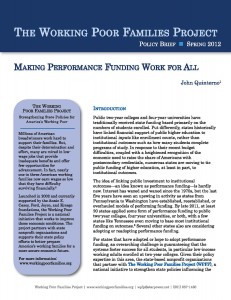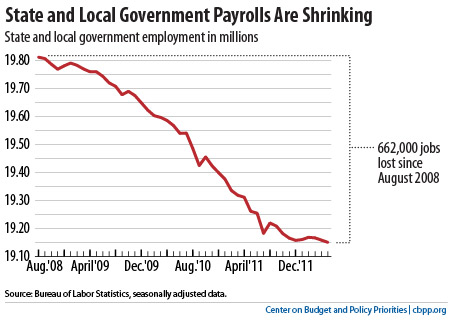13.06.2012
Policy Points
Writing in The Fiscal Times, economist Mark Thoma asks why policymakers aren’t more concerned about unemployment.
The imbalance in political power, obstructionism from Republicans designed to improve their election chances, and attempts by Republicans to implement a small government ideology are a large part of the explanation for why the unemployed aren’t getting the help they deserve.
…
But Democrats aren’t completely off the hook either. Centrist Democrats beholden to big money interests are definitely a problem, and Democrats in general have utterly failed to bring enough attention to the unemployment problem. Would these things happen if workers had more political power?
…
When we talk about leveling the playing field, it is generally in terms of economic opportunity. However, leveling the political playing field is just as important, and in the past unions provided workers with a powerful voice in the political arena. But unions have largely faded from the scene, leaving workers with very little organized power. Correcting the political imbalance this has created through the renewed political empowerment of the working class must be part of any attempt to improve our response to serious recessions.
13.06.2012
Our Projects, Policy Points
 States traditionally have tied funding for two- and four-year colleges and universities to student enrollment. Yet in recent years, prompted by state budget constraints and the need to increase the number of Americans with postsecondary credentials, states have begun tying public funding to an array of student outcomes–an approach known as performance funding.
States traditionally have tied funding for two- and four-year colleges and universities to student enrollment. Yet in recent years, prompted by state budget constraints and the need to increase the number of Americans with postsecondary credentials, states have begun tying public funding to an array of student outcomes–an approach known as performance funding.
In early 2012, The Working Poor Families Project, a national initiative to strengthen state policies influencing the well-being of low-income working families, commissioned South by North Strategies, Ltd. to prepare a policy brief summarizing the current state of performance funding.
The resulting report provides an overview of performance funding in the states, highlighting the importance of performance funding systems that cover all students, including non-traditional students, and values their progress and success in determining institutional funding. The brief concludes with policy recommendations for state policy organizations interested in ensuring that performance funding works for all students.
12.06.2012
Policy Points
Economic policy reports, blog postings, and media stories of interest:
12.06.2012
Policy Points
Off the Charts traces the ongoing contraction of the payrolls of state and local governments.

12.06.2012
Policy Points
From the Federal Reserve Bank of Richmond’s latest survey of service-sector activity in the South Atlantic (District of Columbia, Maryland, North Carolina, South Carolina, Virginia and West Virginia):
Service sector activity remained generally soft in May, although employment picked up, according to the latest survey by the Federal Reserve Bank of Richmond. Retail sales performance was subdued, with big-ticket sales in decline and shopper traffic unchanged from a month ago. Retail inventories were little changed. Revenues were also lackluster at non-retail services firms this month. Looking ahead six months, retailers expected sales to remain weak, while services providers anticipated stronger customer demand.
…
On the jobs front, hiring rose, with the majority of the growth occurring at non-retail firms. Average wages also made solid headway at services providers, driving up the wage indicator for the broad service sector.
…
The pace of price change slowed overall in May compared to a month ago. Survey participants expected a faster rate of increase during the next six months.



 Email Sign-Up
Email Sign-Up RSS Feed
RSS Feed